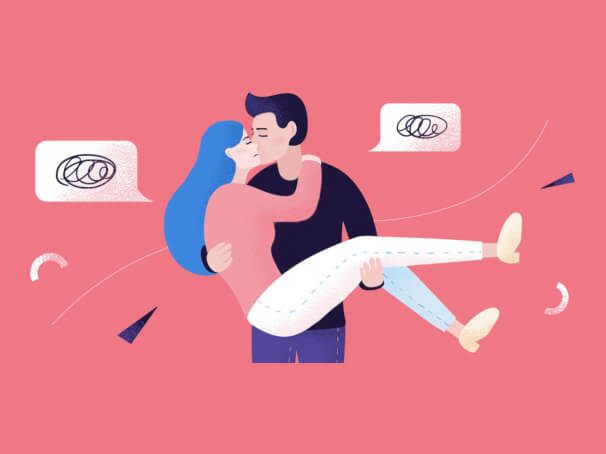
Peripheral neuropathy literally translates as peripheral nerve pain.. It's generally caused by something that damages the nerves directly, and leads to changes of functioning in some parts of the body that can cause symptoms that may be extremely distressing.
Many people with anxiety believe they have developed peripheral neuropathy, and some even believe that anxiety can cause it. But does anxiety cause peripheral neuropathy, and how can you reduce the sensations?
Types of Anxiety and Peripheral Neuropathy
Peripheral neuropathy has a lot of different types of symptoms. Some of the most common include:
- Tingling or crawling sensations.
- Numbness or trouble with movement.
- Pins and needles (like when a limb falls asleep).
Cramping, pain, and heaviness may also occur. But each one depends on the location of the nerves, the type of damage, and so on.
Anxiety doesn't actually create peripheral neuropathy. While anxiety and stress have been thrown around as possible issues that lead to neuropathy, peripheral neuropathy is about nerve damage, not nerve symptoms, and since anxiety is unlikely to cause nerve damage, it can't technically be peripheral neuropathy.
But anxiety can cause symptoms that resemble this type of disorder. Anxiety very commonly causes tingling, numbness, burning, or movement issues in various areas of the body, and when it does it can be very scary. Those that selfdiagnose often come up with health reasons that cause these symptoms, but they may be caused by anxiety.
How Peripheral Neuropathy is Diagnosed
If you are concerned that your symptoms are the result of a physical medical issue rather than anxiety you may want to undergo some diagnostic tests that can be ordered by your doctor. These will test your nerve function and health which will be able to show if you have true organic disease or if your symptoms are the result of hyperventilation and stress.
Electromyography
This test uses two fine needles to send electricity through your muscles. Any change in the signal could mean that there is underlying disease affecting your nerves.
Biopsy
A small sample of your muscle is taken using a needle and looked at under a microscope in a lab. Different types of nerve cell damage can be seen if your symptoms are not the result of anxiety.
Scans
MRI and CT scans can show pressure points where nerves have been crushed by bone, usually around your spine. Treatment for this can range from physiotherapy to surgery and treatment of any anxiety will not cure the symptoms.
How Anxiety Causes Similar Symptoms
Anxiety causes several issues that may lead to the development of these types of symptoms. Just a small sample includes:
- Hyperventilation Hyperventilation is very common when you have anxiety, and when you hyperventilate your blood vessels constrict which takes away blood flow from some parts of your body. Without blood flow, these areas start to tingle, burn, etc.
- Nerve Firings There is some evidence that anxiety causes the nerves to fire more, which can also lead to this feeling as though your nerves are always activated and cause "nerve damage-like symptoms" that can be hard to deal with. Anxiety can also cause cramps and other issues that are related to nerves.
- Over Awareness Another problem is the result of over-awareness. When you're overly aware of your body, you can have trouble moving them leading to issues with gait (walking style) and how your body feels. It may feel heavier, or harder to move, etc. Over Awareness is a serious issue that can also make otherwise healthy issues (like your leg waking up after sitting in an uncomfortable position) worse.
All of these are very similar symptoms to what people experience when they have peripheral neuropathy, which is why it's so easy to self-diagnose peripheral neuropathy when in reality you just have anxiety.
How to Overcome Neuropathy-Like Symptoms
Reducing these types of issues that can lead to peripheral neuropathy-like symptoms can be tough. Ideally you need to combat your anxiety altogether. But in the meantime, consider the following:
- Breathe Better First and foremost, you need to breathe better. If you find yourself hyperventilating too often, make sure you slow your breathing down considerably. Take as long as 5 seconds to breathe in, hold for 2 seconds, and breathe out for 7. Slowing down your breathing is very important for controlling anxiety.
- Distract Your Mind The other key is about distraction. Remember that many of the symptoms you have are related to thinking too much about how some parts of your body feel. Keep your mind busy as much as you can. You need to distract your mind from focusing too heavily on your body, because only by doing that can your body's movements feel more natural again.
But of course, these are only the beginning, and aren't going to cure your anxiety. These will simply decrease the severity of what you experience, so that hopefully you can reduce some of your peripheral neuropathy like symptoms.











